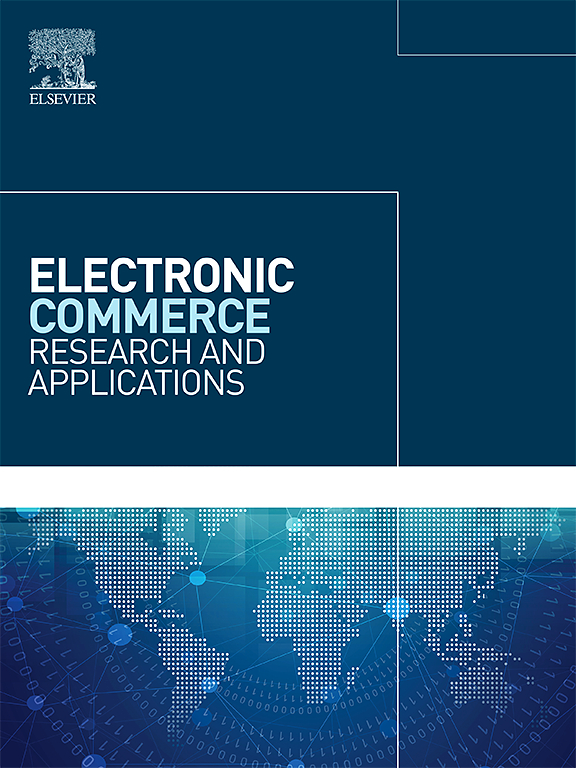电子邮件营销活动中的推动:权威原则和时间敏感动态的作用
IF 6.3
3区 管理学
Q1 BUSINESS
Electronic Commerce Research and Applications
Pub Date : 2025-07-22
DOI:10.1016/j.elerap.2025.101534
引用次数: 0
摘要
本研究探讨了行为推动,特别是权威原则,如何影响电子邮件营销活动的打开率。通过与一家专门从事美发产品的电子商务企业进行实地实验,我们测试了基于权威的发件人姓名和主题行对打开率和点击率的影响。使用Mailchimp的订阅者被随机分配到实验组和对照组。Mailchimp是一个电子邮件营销平台,被认为是电子邮件营销软件的全球领导者。在实验1 (N = 1,252)中,我们研究了基于权威的发件人姓名的影响,而实验2和3测试了主题行中的权威呼吁(N = 5,184和N = 4,353)。研究结果显示,发件人姓名和主题行中基于权威的提示可能会增加打开率,但不会增加点击率,尽管打开率的结果仅在选择获胜版本时具有统计学意义,但从长远来看却不是这样,显示出潜在的淡出效应。本研究强调的时间维度(获胜版本选择的时间)为推动在数字营销中的应用的未来研究提供了重要的方法论见解。这些结果为营销人员提供了实用的见解,同时也促进了对电子邮件营销中消费者对行为推动的敏感性的理解,并促进了电子邮件营销活动中衡量结果的标准化方法的发展。本文章由计算机程序翻译,如有差异,请以英文原文为准。

Nudges in email marketing campaigns: The role of the authority principle and time-sensitive dynamics
This study explores how behavioral nudges, specifically the authority principle, influence open rates in email marketing campaigns. Through field experiments conducted with an e-commerce business specializing in hair products, we tested the impact of authority-based sender names and subject lines on open and click rates. Subscribers were randomly assigned to treatment and control groups using Mailchimp, an email marketing platform that is considered the global leader in email marketing software. In Experiment 1 (N = 1,252), we examined the effect of an authority-based sender name, while Experiments 2 and 3 tested authority appeals in subject lines (N = 5,184 and N = 4,353, respectively). Findings reveal that authority-based cues in both sender names and subject lines may increase open rates but not click rates, although the result on open rate was statistically significant only by the time the winning version was selected, but not in the long-term, showing a potential fade-out effect. The temporal dimension (time of winning version selection) that is highlighted in this study offers a critical methodological insight for future research in the application of nudges in digital marketing. These results offer practical insights for marketers, while also advancing the understanding of consumer susceptibility to behavioral nudges in email marketing and enhance the development of standardized methodologies for measuring outcomes in email marketing campaigns.
求助全文
通过发布文献求助,成功后即可免费获取论文全文。
去求助
来源期刊

Electronic Commerce Research and Applications
工程技术-计算机:跨学科应用
CiteScore
10.10
自引率
8.30%
发文量
97
审稿时长
63 days
期刊介绍:
Electronic Commerce Research and Applications aims to create and disseminate enduring knowledge for the fast-changing e-commerce environment. A major dilemma in e-commerce research is how to achieve a balance between the currency and the life span of knowledge.
Electronic Commerce Research and Applications will contribute to the establishment of a research community to create the knowledge, technology, theory, and applications for the development of electronic commerce. This is targeted at the intersection of technological potential and business aims.
 求助内容:
求助内容: 应助结果提醒方式:
应助结果提醒方式:


